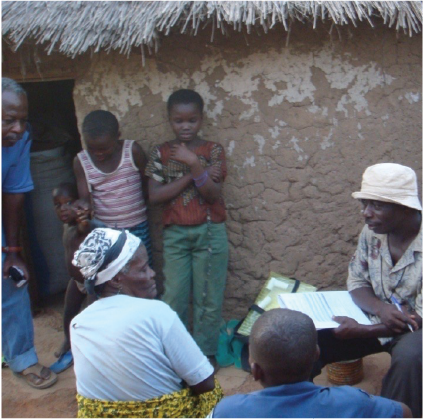- Data/
- Data collection tools/
- World Health Survey Plus

World Health Survey Plus
The World Health Survey Plus (WHS+) is the World Health Organization’s flagship household survey programme, focused on generating data needed to align with shifting data needs in health programming, policy and analysis, while also working to strengthen household survey systems in member countries. The World Health Survey Plus (WHS+) builds on WHO’s experience with generating, analyzing and disseminating representative data from household surveys in over 101 countries. The WHS+ provides a data collection system for countries to monitor their progress towards population health targets, health-related SDGs, and WHO’s impact framework. WHS+ will drive measurement of strategic health goals and add value to countries’ data collection.
Background
Monitoring health-related SDGs (HRSDGs) requires functioning data systems in each country, including household and other-population-based surveys, surveillance systems, regular harmonized health facility assessments and administrative data, civil registration and vital statistics, and other sources that may be outside of the health sector. Household surveys are an indispensable component of comprehensive health data and surveillance systems.
Household surveys are the source of 80 of the 232 SDG indicators. Narrowing the scope to focus on the Health-Related SDGs still spans 12 of the 17 goals, and includes 33 targets and 59 indicators pertaining to health outcomes, health services, and well-established environmental, occupational, behavioural, and metabolic risks. The preferred data source for 29 of these Health-Related SDG targets is nationally representative household surveys.
For approximately one-third of countries there is no recent primary or underlying data on more than half of the health-related SDG indicators. Due to the lack of standardization and coordination in data collection, there is also an excessive reporting burden on countries, and challenges in data comparability across or within countries over time. Household and population surveys can be implemented rapidly to collect representative data on important health, social, economic and policy topics.
A survey with an agenda
Household surveys play a critical role in meeting national data needs. Currently, surveys are available from too few countries, often cover only certain topics, focus on certain population groups and may not be comparable. Survey data may not systematically feed into national information systems for health and should work towards building national capacity.
- The WHS+ would aim to achieve better sequencing and coordination between studies, improvements in integrating survey data into health information systems and country capacities, and inclusion of neglected topics and population groups.
- WHS+ provides countries with the opportunity to fill gaps in health data. WHS+ will support countries to measure what is being done, reveal what impact this is having, establish the value of return on invested funding and assess progress towards global goals.
- WHS+ builds on WHO’s World Health Survey conducted in 69 countries. WHS+ also derives best practices from other WHO and international surveys, such as the longitudinal Study on global AGEing and adult health (SAGE), Demographic and Health Survey (DHS), Multiple Indicator Cluster Surveys (MICS), Living Standards Measurement Study (LSMS), and Global Adult Tobacco Survey (GATS). The sampling design of WHS+ is adaptable to allow cross-sectional or longitudinal surveys.

Aims and Objectives
The aim of the WHS+ is to generate valid, reliable, comparable and timely information on a range of health and well-being outcomes and determinants of public health importance in nationally representative target populations. The results from the WHS+ will support WHO member states to track progress on country-specific objectives and towards Universal Health Coverage (UHC) and HR-SDG targets, and WHO’s Impact Framework approved by Member States.
Primary Objectives
- Create a robust multi-functional data collection platform for generating data to monitor progress on national priorities, HR-SDGs and UHC.
- Support countries to generate, analyse and use high-quality data to fill data gaps.
- Develop standardized, computerized data collection strategies that enable speedier data collection and more reliable comparison across countries
Additional Objectives
- Develop capacities in using evidence for policy
- Institutionalize a regular data generation platform in countries
- Provide tools and methods for better sequencing and coordination between studies
- Pursue improvements in integrating survey data into health information systems
- Provide methods for the inclusion of neglected topics and population groups
- Build on post-census surveys with up-to-date sampling frames
- Introduce a suite of data collection and analysis tools to use alongside National Statistics Offices and the United Nations Statistics Division
WHS+ supports the national and international environments for household surveys to meet new data demands and increase its impact in the years leading up to the 2030 UN SDG Agenda.
WHS+ is designed to deliver timely high-quality data, uses innovative technology and reliable methodologies, and can be integrated into ongoing surveys or implemented as a stand-alone survey.


